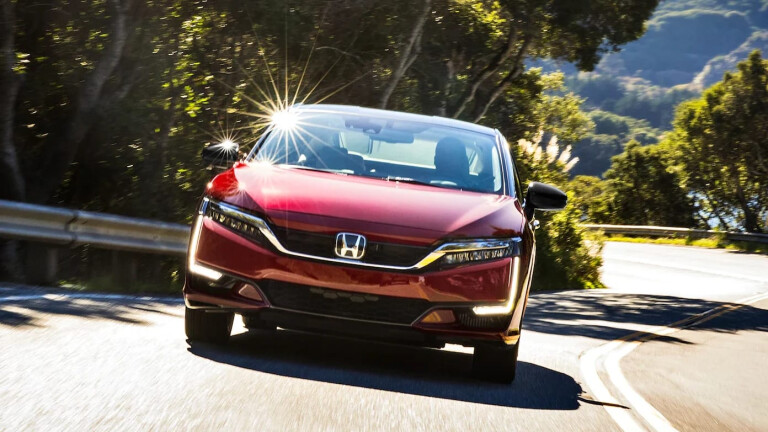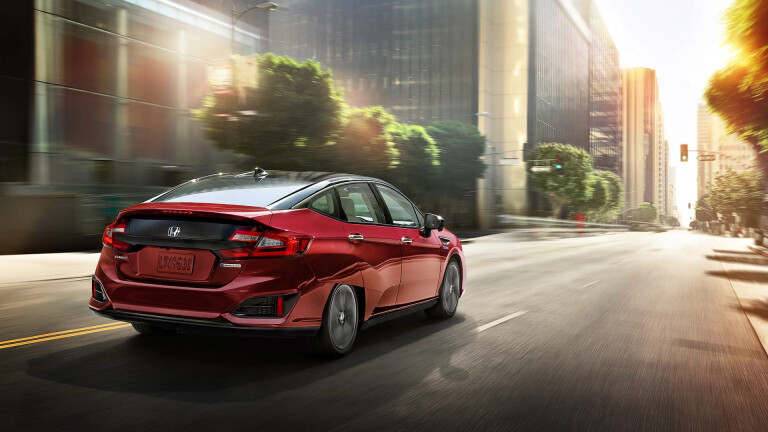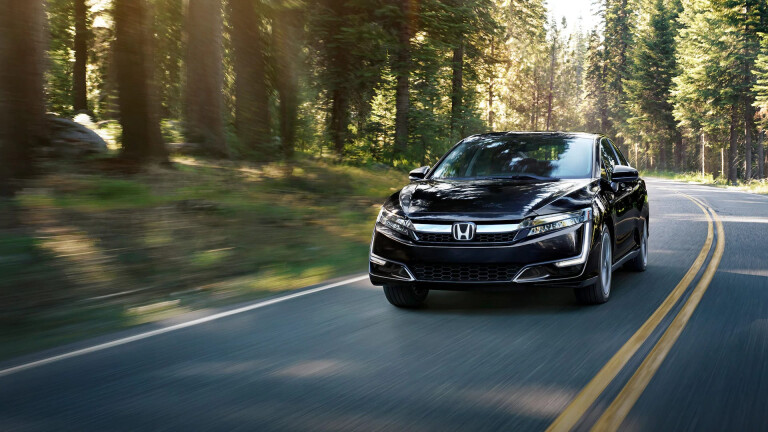
Snapshot
- Dwindling sales and lack of hydrogen support leads to demise
- Less than 20 per cent of Clarity sales came from hydrogen variant
- Honda and General Motors still engaged in fuel cell joint venture
Honda has announced its Clarity model will cease to exist globally as it shuts down the Japanese plant where it is made, dealing a serious blow to hydrogen fuel cell supporters.
According to the publication Nikkei, both the hydrogen fuel cell electric (FCEV) and plug-in hybrid (PHEV) variants of the Clarity will be on the chopping block, Honda choosing not to produce the vehicle elsewhere when its Sayama plant closes in March 2022.
Available as a lease-only vehicle in Japan, Europe and the United States, the Clarity has endured dwindling demand, with American examples only sold in Southern California due to a lack of hydrogen fuel stations.

In the US, of the 11,654 Clarity units sold in 2019, just 2089 of those were hydrogen fuel cell vehicles, representing just under 18 per cent of the model's sales with overall figures continuing to fall to 4215 in 2020.
According to the California Fuel Partnership, there have been 10,665 fuel cell electric vehicles sold in the United States but there are only 46 hydrogen stations available in California.
In a statement to American publication Motor1, Honda said it wants 100 per cent battery electric or FCEV vehicle sales by 2040 with an overall target to be carbon neutral by 2050.
"Now, with a commitment to carbon neutrality by 2050, Honda has set a target to make 100 per cent of our vehicles sales battery-electric (BEV) or fuel cell electric (FCEV) by 2040," the statement read.
"We are evolving our strategy with a focus on increased application of our two-motor hybrid system to core models in advance of the introduction of our first volume of BEV models in 2024.
"Consistent with this strategy, Honda will conclude production of the Clarity plug-in hybrid and Clarity fuel-cell in August 2021. This will ensure we have the Clarity fuel-cell available for lease through 2022, and Honda will continue to support our Clarity customers in the marketplace."

Honda and General Motors entered into a partnership together in 2013 to develop fuel-cell vehicle technologies, setting up a joint venture in 2017 aimed at producing battery systems for the vehicles, with the Japanese manufacturer saying the partnership will continue into the future.
"FCEVs will play a key role in our zero emissions strategy, which is being advanced by our joint manufacturing and development agreements.
"We continue to make significant investments in fuel-cell infrastructure and battery technology."
There are currently no hydrogen vehicles for public sale in Australia – though the Australian Capital Territory Government currently has a fleet of 20 Hyundai Nexo FCEVs, with two filling stations at a Hyundai dealer in Phillip as well as a dedicated ActewAGL station in Fyshwick.
COMMENTS